By south-Tatar rules: oilers reaching for reserves in Samara and Orenburg region
Tatarstan maintains oil production at the level of 35 million tonnes but is ready to expand it through the development of undistributed funds in Samara and Orenburg region
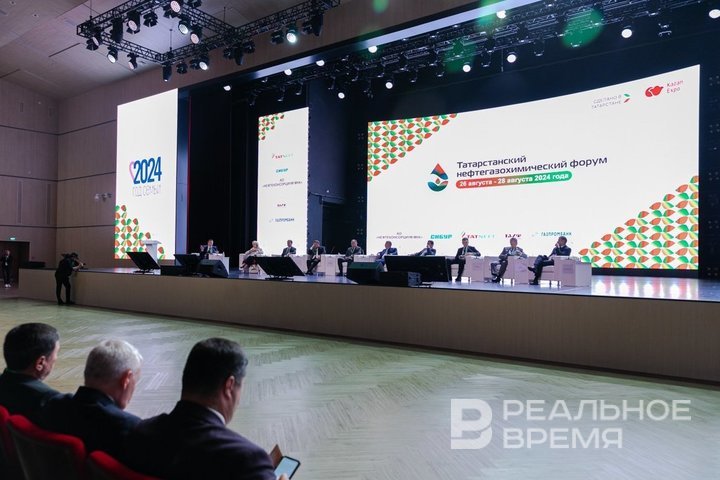
“Russia has been denied access to modern solutions in oilfield services, oil refining, and microelectronics — many advanced technologies have turned out to be unavailable. In these conditions, we will have to learn how to do it from scratch," Dmitry Sauers, the deputy chairman of the board of Gazprombank, outlined the starting position on the path to technological sovereignty. At the plenary session of the Tatarstan Petrochemical Forum, Rustam Minnikhanov, together with Bahrain Oil Minister Mohamed bin Mubarak Bin Daina and Russian guests discussed how to do without foreign partners in the oilfield service. The statement of the head of TNG-Group, Yan Sharipov, was sensational that Tatarstan oilmen were going to ensure an increase in oil production at the expense of the undistributed fund of the Samara and Orenburg regions. Read the details in the material of Realnoe Vremya.
Without Western “partners”
The main focus of the discussion at the plenary session was on achieving a scientific and technological breakthrough, and not only in the fuel and energy sector, but on the entire global front. This was expected due to two circumstances. Firstly, the year 2024 was declared the Year of Scientific and Technological Development in Tatarstan, so the agenda was formed from the very beginning for technology, and secondly, the oil industry was one of the first to experience a shortage of modern technological solutions and equipment for efficient oil and gas production. With the withdrawal of the Western oilfield services companies Halliburton and Schlumberger, the Russian fuel and energy sector began to change priorities: the task of intensifying geological exploration in developed fields and in poorly explored regions comes to the fore. It is here that sources of ensuring raw materials and energy security will be sought.
Tatarstan's contribution to maintaining high oil production rates in the country is significant. According to Rustam Minnikhanov, the republic keeps it at the level of 35 million tonnes per year, being one of the few regions with positive dynamics. According to him, Tatarstan could produce more, but “there are constraining factors.”
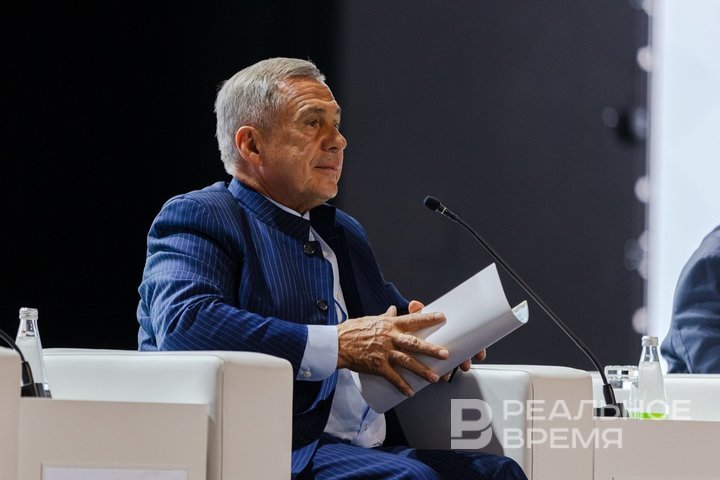
“This is also related to the OPEC+ agreement. We can do more," he said.
2/3 of the volume, or 23 million tonnes, is refined inside the republic.
“We have two complexes with high efficiency. Further development of petrochemistry and oil refining is our key task," noted Minnikhanov.
However, building up the raw material base is at the forefront. Later, he admits: one should not expect that Western oilfield service companies will return access to them to Russian oil companies. He spoke in the sense that “you will not be able to buy advanced technologies until you have your own”.
“Even before, Western countries sarcastically looked at [attempts to recreate] scientific and technological sovereignty," said Dmitry Shchugorev, the moderator of the session, TV presenter of Rossiya 24.
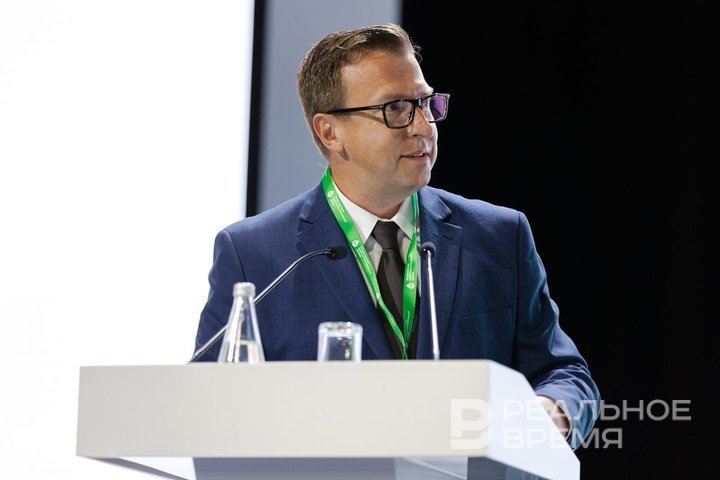
Tatneft will go further
The state has taken on the task of overcoming the technological gap. According to Mikhail Yurin, Deputy Minister of Industry and Trade of the Russian Federation, the formation of a national project is being discussed, which will contribute to the creation of scientific and engineering centers at large universities. Under their leadership, it is planned to recreate low-tonnage production of various elements: from raw materials, intermediates to finished products.
Meanwhile, the republic has been thinking about the prospect of an increase in oil production due to access to neighbouring regions. We are talking about the Orenburg and Samara regions.
“These territories are located as close as possible to the mining infrastructure of Tatarstan. And there are a lot of undistributed funds here. Therefore, they need to be paid attention to," said Yan Sharipov, the head of TNG Group.
He recalled that 227 oil fields and 150 deposits of natural bitumen have been discovered in the republic, which ensure the maintenance of production of 35 million tonnes.
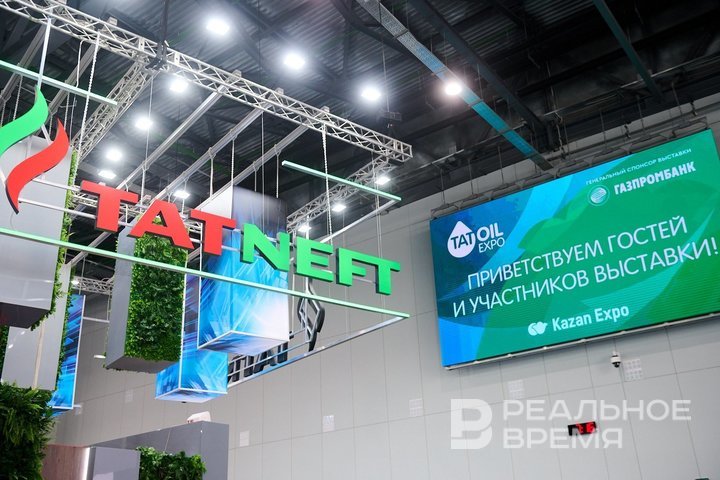
“These sites are adjacent to the geological Tatar fold, which extends to Orenburg and Samara," Yan Sharipov clarified.
Besides, there are promising areas to the east of Romashka. We are talking about Bashkiria.
“Here, lands with a high density of hydrocarbons are observed to the east of Romashka, this is a continuation of the North Tatar Fold and the Birskaya saddle, which extends towards Udmurtia. This is also one of the areas for increasing the resources of our large oil companies in Tatarstan, and Tatneft above all," said the head of TNG Group.
Currently, Tatneft already operates in the Samara and Orenburg regions. Tatarstan oilers do not operate in Bashkiria, the KFU vice-rector Danis Nurgaliyev told reporters.
We'll have to learn how to do it from scratch
Bahrain's Oil Minister Mohamed bin Mubarak Bin Daina expressed admiration for the technologies for oil and gas production seen at the exhibition. He came to Kazan on the personal instructions of the king. Most of all, he was struck by compressor stations that provide pumping of energy resources, an unusual installation for lifting hydrocarbons.
“These innovative solutions make it possible to be independent of Western technologies," he believes.
“Russia has been denied access to modern solutions in oilfield services, oil refining, and microelectronics — many advanced technologies have turned out to be unavailable. In these conditions, we will have to learn how to do it from scratch," Dmitry Sauers, the deputy chairman of the board of Gazprombank, outlined the starting position on the path to technological sovereignty.
According to him, competition between the countries will take place in the field of technology, and the development of technology is impossible without fundamental science.
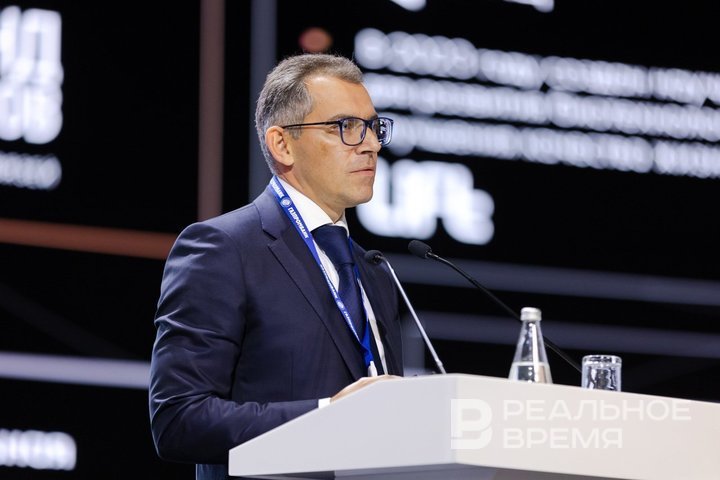
“But how to make science give birth to new products for the country, and knowledge turn into utility — now we need to build a conveyor belt for turning knowledge into utility," he reasoned.
Gazprombank performs the function of building a research ecosystem in the country, being the founder of the Vyzov Award (the Russian equivalent of the Nobel Prize). Gazprombank started to think about a technological breakthrough 20 years ago, when it had to invest capital in the domestic petrochemical engineering industry — Uralmash, Cryogenmash, Izhorskiye Zavody.
“Nail (CEO of Tatneft Nail Maganov — editor's note) discussed an interesting case of how Izhorskiye Zavody began to produce petrochemical equipment — it's just a combination of circumstances and trust, and now he has competence in the construction of huge hydrocracking reactors that were not made in the USSR. It is impossible to create production without scientific engineering schools," Dmitry Sauers believes. He expressed readiness to create funds and start-ups for oilfield services and petrochemistry.